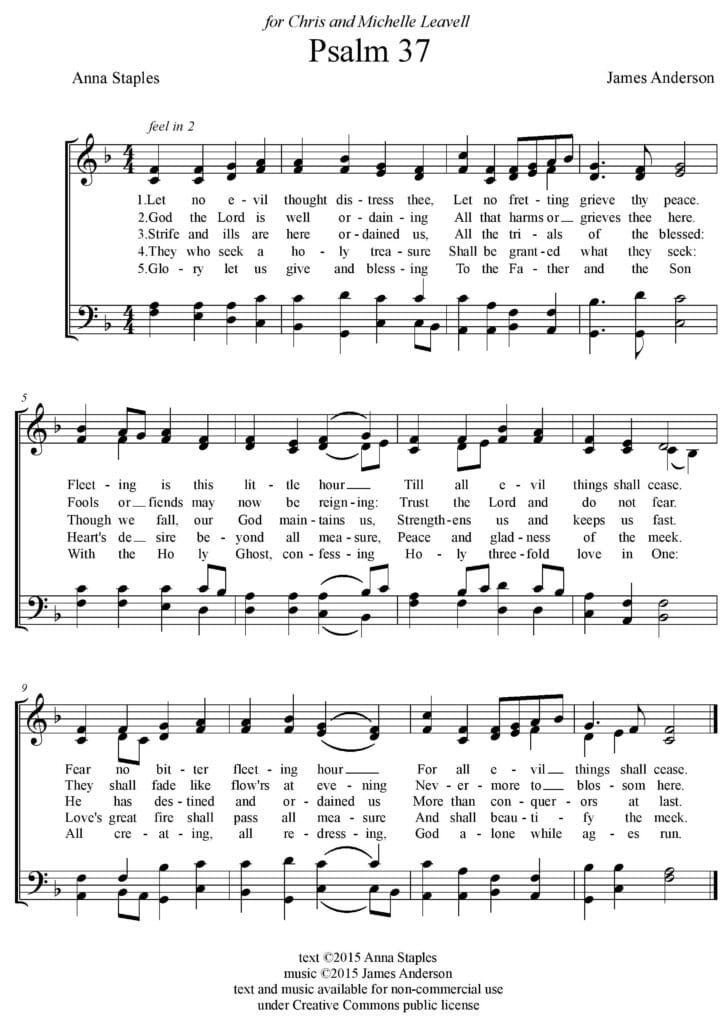Hannah Overton knew she hadn’t murdered her foster son Andrew.
But the Overton family’s grief over four-year-old Andrew’s death turned to horror as investigators pinned the death on Hannah and her husband Larry. One afternoon in October 2006 when Andrew and Hannah had been in the house together, after the boy had been particularly difficult to control, he began vomiting and experiencing chills. Soon his breathing became labored. Worried, Hannah called Larry, who immediately came home from work. They tried various means to help Andrew, but soon realized that his condition was beyond their expertise. They rushed Andrew to the hospital. Hospital staff became unusally concerned at Andrew’s condition, and informed law enforcement right away. The hospital staff separated Hannah and Larry from Andrew, so that the foster parents could not be by the boy’s bedside that night when his organs finally failed.
Andrew had died of salt poisoning, an unusual occurrence in which a person ingests too much salt. He also had some evidence of bruising and scarring on his body, leading law enforcement to believe that Hannah had in some way force-fed Andrew salt while physically restraining him. Had Hannah become frustrated and angry at Andrew’s behavior and just snapped, killing the boy through discipline gone wrong? Unfortunate circumstancial evidence seemed to reinforce the suspicions of Texas Child Protective Services (CPS), local law enforcement, and the medical team who treated Andrew.
People from the Overtons’ church were just as shocked at the allegations as the Overtons were. They had known Hannah as a dedicated and loving mother, the perfect candidate for foster parenting. Friend and neighbor Kathi Haller adamantly asserted to the police that Hannah had always been patient and composed when dealing with the children in her home.
But the authorities were unconvinced. Hannah and Larry were arrested, and Hannah’s trial began in August 2007. As the judge and jury heard from the medical team who had attended Andrew, as well as various members of law enforcement and CPS, a picture seemed to emerge of a woman who had in cold blood killed the young boy. Even Hannah’s calmness in the face of Andrew’s deteriorating condition proved to be a witness against her.
After nearly 10 months of negative media coverage and a three-week trial, the jury returned their verdict: guilty of capital murder.1The jury was given the unusual choice of convicting Hannah either of actively murdering Andrew or of negligently allowing him to die by failure to seek help quickly enough. They chose the latter, … Continue reading So Hannah Overton—a trained nurse, a wife of 10 years, having just given birth to her fifth child, an evangelical Christian with no previous criminal record—was sentenced to life in prison without the possibility of parole.
But almost immediately after Hannah’s conviction, questions began to emerge. How had Hannah—five feet tall, six months pregnant, and recovering from whiplash after a car accident—managed to force Andrew to eat a fatal amount of salt diluted in water in a sippy cup? Pediatrician Edgar Cortes, who had examined Andrew a year earlier and also had seen Andrew in the ER, contacted Hannah’s attorney. Dr. Cortes had been ready to testify in support of the prosecution, but was not called during the trial. After the trial, Dr. Cortes was shocked that all evidence of a medical condition had been discounted or ignored during the trial. He believed that Andrew suffered from a variety of medical issues, perhaps including pica, an unexplainable desire to eat items with no nutritional value. Though originally intending to testify against Hannah, Dr. Cortes came to believe that the sentence had been erroneous. Even jury members expressed their doubts about what they had just done. The news media, which had been largely hostile to Hannah as her case worked its way through the judicial system, began to reconsider. Reporter Pamela Colloff with Texas Monthly wrote a lengthy piece detailing the evidence that pointed to Hannah’s innocence.2Available at https://www.texasmonthly.com/true-crime/hannah-and-andrew/. Note: the article contains some graphic descriptions and a brief use of strong language.
In Canada, poet Anna Staples began following Hannah’s case as Hannah served out her life sentence. Ms. Staples was impressed by Hannah’s desire not to waste her imprisonment. While in prison, Hannah planned birthday parties and prepared homeschool lesson plans for her children. She counseled the other women in prison with her, started Bible studies, and convinced the prison to develop a faith-based dorm for the female prisoners. Hannah found Psalm 37:6 particularly meaningful: “He will bring forth your righteousness as the light, and your justice as the noonday.” Anna Staples wrote a metrical version of the psalm, focusing not so much on its most familiar verses but on the overriding theme of the sovereignty of God over the unexplained and unexplainable trials of life:
Let no evil thought distress thee,
Let no fretting grieve thy peace.
Fleeting is this little hour
‘Til all evil things shall cease.
Fear no bitter fleeting hour,
For all evil things shall cease.God the Lord is well ordaining
All that harms or grieves thee here.
Fools or fiends may now be reigning:
Trust the Lord and do not fear.
They shall fade like flowers at evening
Nevermore to blossom here.Now the world may speak thee evil,
Now all evil things befall,
But thy judgment stands forever
With the Lord who judges all:
He shall justify forever
Faith and hope and labors all.Strife and ills are here ordained us,
All the trials of the blessed:
Though we fall, our God maintains us,
Strengthens us and keeps us fast.
He has destined and ordained us
More than conquerors at last.They who seek a holy treasure
Shall be granted what they seek:
Heart’s desire beyond all measure,
Peace and gladness of the meek.
Love’s great fire shall pass all measure
And shall beautify the meek.Glory let us give and blessing
—Anna Staples, 2014
To the Father and the Son
With the Holy Ghost, confessing
Holy threefold love in One:
All creating, all redressing,
God alone while ages run.
I became aware of this poem when Kevin Bauder of Central Baptist Theological Seminary included it at the end of one of his weekly “In the Nick of Time” articles. In “An Open Letter to Chris Leavell,” Dr. Bauder wrote to a young pastor who had just been diagnosed with terminal melanoma. My wife Marisa and I had attended Bible college with Chris and his wife Michelle, and though we had not maintained contact since graduation, I had seen Chris’s name pop up enough to know that we were still in the same circles. I was moved by the circumstances and by Chris’s solid faith in God in the face of death. As I read Ms. Staples’s poem, I thought, “The Church needs to sing this!” I contacted Ms. Staples, who graciously gave me permission to set her poem to music. The tune came quickly, and I was able to send it to Chris and Michelle several weeks before Chris entered eternity in late 2015.
Though Chris Leavell’s earthly life ended in 2015, Hannah Overton’s earthly life was in a sense resurrected. Earlier appeals had fallen through, though new evidence came to light in 2010 that the prosecuting attorney had apparently omitted from Hannah’s trial. A new defense lawyer, Cynthia Orr, who had had success in challenging wrongful convictions, took over Hannah’s case. Finally, in late 2014, after seven years in prison, Hannah was released when Texas’s highest appellate court overturned her conviction. In April 2015 the murder charges were officially dropped, and Hannah was declared to be innocent of any crime. Sadly, Andrew’s death likely came about because he ate salt out of the cupboard.
One of the most striking parts of Anna Staples’s “Psalm 37” comes in the last stanza. It’s a traditional “Gloria Patri,” offering praise to the Father, Son, and Holy Spirit. Then it says of God, “All creating, all redressing.” We are used to thinking of God as Creator, but how often do we think of Him as Redresser? To redress is to make wrongs right, and God will make all wrongs right. For Hannah Overton, it came during her lifetime. Others must wait until eternity, but the God who keeps our tears in His bottle and records them in His book (Ps 56:8) will one day wipe all tears from our eyes (Isa 25:8, Rev 21:4). He is not slow concerning His promises (2 Pet 3:9), and “according to his promise we are waiting for new heavens and a new earth in which righteousness dwells” (2 Pet 3:13). Death and pain and sorrow will be overthrown, and we will see that the sufferings of the righteous are not in vain.

References
| 1 | The jury was given the unusual choice of convicting Hannah either of actively murdering Andrew or of negligently allowing him to die by failure to seek help quickly enough. They chose the latter, which because of Andrew’s age still resulted in a capital murder charge. |
|---|---|
| 2 | Available at https://www.texasmonthly.com/true-crime/hannah-and-andrew/. Note: the article contains some graphic descriptions and a brief use of strong language. |



